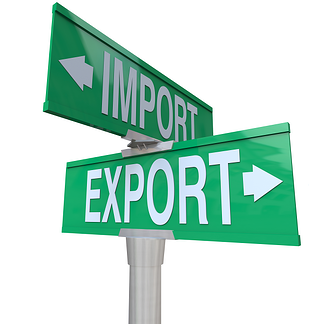*EDIT (June 18, 2014): Congestion Surcharge, should it be applied by carriers, affects ALL shipments Inbound to USA regardless of Port of Entry.*
Just what we all want to hear about. More international shipping surcharges after we’ve been talking about these chassis fees.
 The Journal of Commerce (JOC) reported yesterday (Monday, May 5th) on Hapag-Lloyd informing its customers that the shipping carrier is ready to charge large surcharges on shipments to and from the U.S. if the International Longshore and Warehouse Union’s (ILWU) contract negotiations with the Pacific Maritime Association (PMA) cause work stoppages.
The Journal of Commerce (JOC) reported yesterday (Monday, May 5th) on Hapag-Lloyd informing its customers that the shipping carrier is ready to charge large surcharges on shipments to and from the U.S. if the International Longshore and Warehouse Union’s (ILWU) contract negotiations with the Pacific Maritime Association (PMA) cause work stoppages.
Hapag-Lloyd is not alone. JOC reports:
Hapag-Lloyd is one of at least 12 carriers that have filed their tentative plans for congestion surcharges with the Federal Maritime Commission, said Niels Erich, a spokesman for the Transpacific Stabilization Agreement. Two additional carriers have indicated they will also file congestion surcharges, Erich said today.
What kind of numbers are we talking about with these congestion surcharges on international shipping to and from U.S. West Coast?*
How about $800 per 20-foot container and $1,000 per 40-foot container per the JOC article? Ouch.
What hurts more is the possibility of such fees hitting before a work stoppage actually even occurs.
Two weeks ago, at Universal Cargo Management’s sales meeting, one of the big topics the team was talking about were possible congestion fees at West Coast* ALL US ports from carriers leading up to the ILWU contract expiration.
As soon as May 15th, carriers could be levying congestion fees of $800 on 20’ shipping containers, $1,000 on 40’ shipping containers, and $1,125 on 40HQ shipping containers.
The reason for early congestion fees like these would be from increased shipping now through the West Coast*US ports by shippers worried about possible strikes, shut downs, and slow downs that might happen if contract negotiations between ILWU and PMA fail to reach agreement by the time the current contract expires on July 1st or shortly thereafter.
No one actually expects a new contract to be reached before the previous one expires. By negotiation practice, ILWU will not reach agreement before the July expiration in order to gain increased negotiation leverage.
However, that does not mean there will be a strike or lock out resulting in port slow downs or shut downs and then large congestion surcharges on top of shipping delays for shippers.
All the same, carriers are ready with the surcharges if congestion should get bad at the West Coast* US ports.
To shippers, this must just feel like a double whammy. Many are watching the situation nervously and could be chanting under their breath, “No whammies, no whammies, no whammies!”
With the possible surcharge amounts being so large, many shippers are wondering if this isn’t just a chance for carriers to gouge them on their international shipping.
Carriers are addressing those concerns according to the JOC article:
Maersk understands the concerns of its customers at this time of uncertainty, so the company is reminding shippers that a congestion surcharge is possible if the carrier incurs significantly higher costs that could result from port congestion associated with the negotiations, he said.
If carriers should implement congestion surcharges, they intend to quantify their additional costs as precisely as possible so that customers will see the charge as reimbursement for actual expenses rather than as an opportunistic attempt to create a new profit center.
 Carriers having surcharges ready does not mean that they absolutely will be imposed. Nor, if imposed, the surcharges will be imposed in full.
Carriers having surcharges ready does not mean that they absolutely will be imposed. Nor, if imposed, the surcharges will be imposed in full.
Levying congestion surcharges without actually being hit by real expenses from port congestion would be a bad business move from carriers. It makes it seem unlikely surcharges will actually hit in the lead up to the ILWU contract expiration and only after if negotiations really go south.
Still, there’s plenty of reason to watch negotiations closely as they start on May 12th.
And you’d better believe that we’ll be watching the situation very closely here at Universal Cargo Management to make sure your international shipping goes as smooth as possible.
SOURCE:
